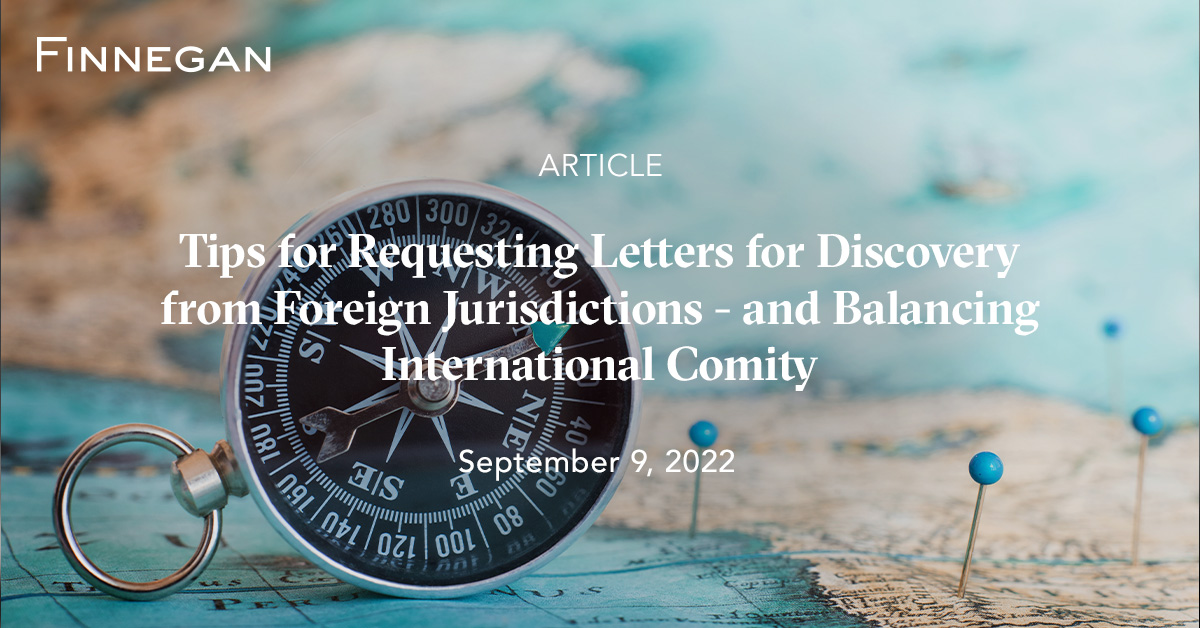Letters Rogatory vs. Mutual Legal Assistance Treaties: Trick Differences Described
Letters Rogatory vs. Mutual Legal Assistance Treaties: Trick Differences Described
Blog Article
The Role of Letters Rogatory in International Regulation: Secret Insights
Letters rogatory function as an essential tool in international regulation, promoting cross-border legal help by enabling jurisdictions to formally ask for evidence and activities from one an additional. Rooted in historical criteria and defined via arrangements like the 1970 Hague Convention, these requests are crucial for cultivating global collaboration. Their application commonly experiences substantial obstacles, consisting of discrepancies in legal requirements and step-by-step hold-ups, which can impede their efficiency. Understanding the nuances of this procedure increases critical questions regarding worldwide cooperation and the possible reforms needed to boost its reliability. What effects might these difficulties have for future legal procedures?
Interpretation of Letters Rogatory
In the world of worldwide legislation, letters rogatory offer as formal requests issued by a court in one jurisdiction to seek assistance from a court in an additional jurisdiction. Letters rogatory. These requests are especially significant in cross-border lawful proceedings, where the enforcement of a court's order or the celebration of evidence might be hampered due to jurisdictional limitations

The process typically needs the asking for court to articulate the details information or activity needed from the foreign court, adhering to the legal procedures and conventions established between the jurisdictions involved. Once provided, the letters rogatory are transmitted via polite channels, which might consist of consular offices or consular offices, to make sure that the demand is identified and acted upon by the international court. On the whole, letters rogatory exemplify the participating framework crucial for effective international lawful processes.
Historic Context
Although the technique of letters rogatory has ancient roots, its formalization within the structure of global law emerged considerably in the 20th century. Historically, such demands for judicial assistance were used in various legal traditions, including Roman regulation, where they assisted in cross-border participation in legal issues. The idea got restored attention with the surge of globalization and the enhancing complexity of worldwide legal interactions.
The mid-20th century saw the facility of treaties and conventions that looked for to standardize the procedure of letters rogatory. Significantly, the 1970 Hague Convention on the Taking of Evidence Abroad in Civil or Commercial Matters supplied a structured method, enhancing the efficacy of these requests - Letters rogatory. This period noted a change from informal setups to a much more methodical structure, which attended to the challenges presented by differing national lawful systems
As states ended up being extra interdependent, the requirement for efficient devices to collect evidence throughout boundaries ended up being obvious, reinforcing the function of letters rogatory in helping with international cooperation. Today, they continue to be a crucial tool for acquiring proof and ensuring that justice transcends national boundaries, reflecting the developing nature of global law in reaction to international obstacles.
Process of Issuing Demands
The procedure of issuing letters rogatory generally includes numerous important steps developed to make certain that ask for judicial support are clear, details, and compliant with both international and domestic lawful standards. A party seeking assistance must prepare an official demand that outlines the essential realities of the case, the alleviation sought, and the specific evidence or statement required. This file must be crafted with accuracy to meet the lawful demands of the territory in which it will be submitted.
Following the preparation of the demand, it is sent to the proper authority, commonly a court or a designated governmental agency. This authority examines the demand to guarantee it abides by legal requirements and step-by-step standards. When approved, the demand is transferred to the international jurisdiction with polite channels.
Upon invoice, the foreign court examines the request's conformity with its local regulations and practices (Letters rogatory). If accepted, it continues to implement the request, which might include the issuance of subpoenas or the collection of proof. Throughout this procedure, preserving clear interaction between the asking for and getting territories is vital to make certain successful participation and the satisfaction of the demand
Obstacles and Limitations
Difficulties and constraints regularly develop in the hop over to here procedure of executing letters rogatory, commonly stemming from varying legal systems and treatments between territories. One significant challenge is the differing standards of admissibility for proof, which can cause complications in the approval of documents asked for through letters rogatory. Furthermore, the absence of uniformity in legal terminology and meanings can produce misconceptions, making complex communication between courts in different countries.
In addition, hold-ups prevail as a result of bureaucratic procedures, as the request may need to go through several layers of legal authorities prior to it is met. In some instances, the asked for territory may lack the necessary sources or desire to work together, better impeding the procedure. Language barriers likewise add to obstacles, as exact translation of lawful files is critical for guaranteeing that the desired message is conveyed without distortion.
Finally, sovereignty concerns may develop, as some states are unwilling to adhere to demands that they regard as infringing upon their legal freedom. These obstacles highlight the intricacies intrinsic in using letters rogatory, requiring better harmonization and teamwork amongst worldwide lawful systems to enhance their effectiveness.

Effect On International Cooperation
Recognizing the visit their website value of letters rogatory in fostering international collaboration is vital, as these demands facilitate cross-border legal aid and advertise collaborative efforts in civil and criminal issues. By making it possible for one jurisdiction to officially ask for aid from another, letters rogatory develop a structured lawful framework that improves the performance of global interaction in between judicial authorities.
The use of letters rogatory helps to develop shared trust fund and regard amongst nations, which is necessary in an increasingly interconnected globe. They act as a system not only for collecting proof however likewise for making sure that legal procedures are maintained across boundaries. This is especially vital in combating global criminal offense, where the inability to secure cooperation can undermine justice.
Additionally, the reliance on letters rogatory can enhance complex legal procedures, decreasing hold-ups and unpredictabilities in global investigations. The step-by-step safeguards intrinsic in this special info procedure contribute to the security of private legal rights while facilitating teamwork amongst states. Inevitably, the impact of letters rogatory on worldwide participation emphasizes their role as important tools in the promotion of justice, fostering a joint spirit that goes beyond nationwide boundaries and legal systems.
Verdict
In verdict, letters rogatory offer as an important instrument in international legislation, facilitating cross-border legal aid and participation. The continued development of these devices is important for enhancing the efficiency of global legal processes, ultimately promoting more powerful collaboration in both criminal and civil issues across jurisdictions.
Letters rogatory serve as a crucial instrument in global regulation, assisting in cross-border lawful help by enabling territories to officially request evidence and activities from one another.The procedure typically requires the asking for court to express the particular details or action required from the international court, adhering to the legal procedures and conventions established between the territories entailed. Historically, such requests for judicial assistance were utilized in various lawful traditions, consisting of Roman law, where they assisted in cross-border teamwork in legal issues.The process of providing letters rogatory usually involves numerous crucial actions created to make certain that demands for judicial help are clear, particular, and certified with both global and domestic legal standards.Moreover, delays are typical due to administrative processes, as the request might need to pass via multiple layers of legal authorities prior to it is fulfilled.
Report this page